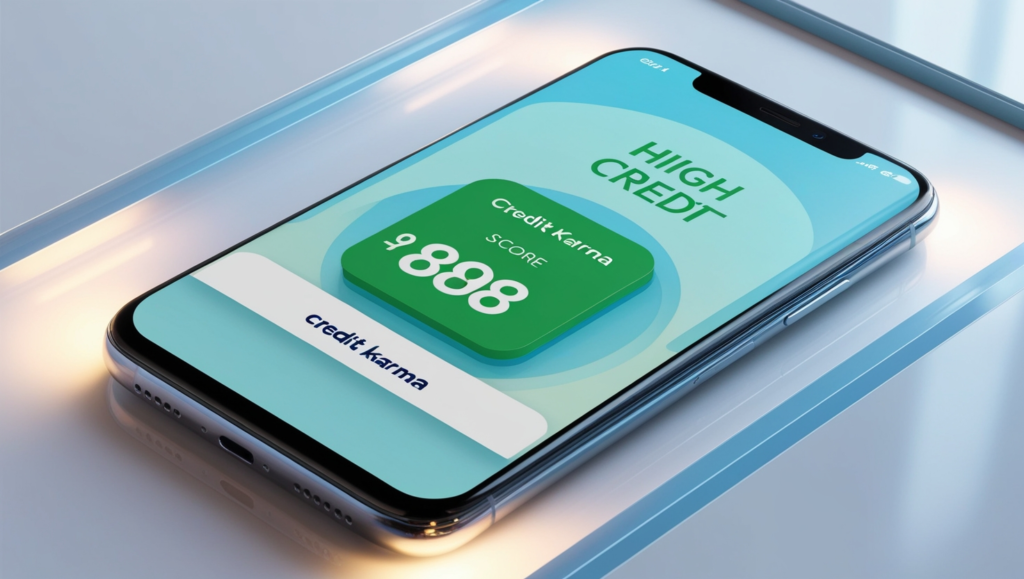Every student should strive to achieve these fundamental financial goals to build a strong foundation for financial success. While managing personal finances can seem overwhelming, especially for those just starting their financial journey, the right strategies, tools, and discipline can make all the difference. From establishing an emergency fund to investing early, each step taken today will have a lasting impact on your financial future. Learning how to effectively manage money, make informed decisions, and track progress is crucial for achieving goals like saving for education, managing debt, or preparing for retirement. This guide offers practical tips and introduces powerful tools—such as budgeting apps, investment platforms, and goal-tracking apps—that can help streamline your financial journey and keep you on track toward long-term success.
Establish an Emergency Fund: An emergency fund is a critical part of any financial plan, particularly for students who may be living on tight budgets. This fund acts as a financial safety net, providing money to cover unexpected expenses without the need to rely on credit cards or loans. Emergencies can come in many forms—medical bills, car repairs, or even sudden job loss. Without an emergency fund, these situations could lead to significant financial strain. Ideally, you should aim to save at least three to six months’ worth of living expenses, but even starting with a smaller goal, like $500 or $1,000, is a step in the right direction. By setting aside a portion of your income each month, even if it’s a small amount, you can gradually build your emergency fund over time. To maximize the growth of your savings, consider placing the money in a high-yield savings account, which offers better interest rates than traditional accounts. This fund will give you peace of mind knowing that you’re financially prepared for the unexpected.
Pay Off Student Loans Efficiently: Student loans are one of the most common financial burdens for students and recent graduates. Tackling these loans efficiently can save you a substantial amount of money in interest over time. The first step in managing student debt is understanding your repayment options. Income-driven repayment plans, for instance, adjust your monthly payments based on your income and family size, making them more affordable in the short term. Loan consolidation is another option to simplify payments and potentially lower your interest rate. If you have multiple loans with varying interest rates, consolidating them into a single loan can make it easier to manage and reduce the overall interest rate. Refinancing is a strategy that allows you to combine your loans into a new loan with a potentially lower interest rate, which can save you money over the life of the loan. However, refinancing federal loans means giving up certain benefits, such as income-driven repayment plans and loan forgiveness, so it’s important to weigh the pros and cons before choosing this option. No matter what method you choose, the goal is to make consistent, on-time payments to minimize interest and pay down your debt as quickly as possible.
Save for Future Education or Graduate School: Planning for future education, such as graduate school, can seem daunting, but starting early can alleviate financial pressure down the road. Graduate school can be a significant investment, and without careful planning, students may find themselves taking on additional debt. To avoid this, it’s essential to begin saving early—even if the amounts are small. Setting aside a portion of your monthly income or any extra funds into a dedicated savings account or 529 plan can help build the necessary funds for future educational costs. A 529 plan, in particular, offers tax advantages, as it allows savings to grow tax-free when used for qualified education expenses. By starting to save now, you can reduce the need to take on large amounts of student loans for graduate school and increase your ability to cover tuition, books, and other educational costs. Even a small, consistent contribution to your savings can make a big difference over time, and the earlier you start, the more you’ll benefit from compound growth.
Build Good Credit: Establishing and maintaining good credit is a crucial aspect of personal finance that can significantly impact your financial future. A strong credit score opens doors to better financial opportunities, such as lower interest rates on loans and credit cards, which can save you a substantial amount of money over time. One of the first steps in building good credit as a student is applying for a student credit card or becoming an authorized user on a parent’s card. Make sure to use your credit card responsibly by making small purchases and paying off the balance in full each month. This not only helps you avoid interest charges but also demonstrates to credit agencies that you can manage credit wisely. Another important factor in building credit is making sure to pay all bills, including utilities and rent, on time. Late payments can negatively affect your credit score, making it harder to secure favorable loan terms in the future. Over time, consistent, responsible use of credit will help establish a solid credit history, making it easier to qualify for larger loans, such as a car loan or mortgage, when the time comes.

Create and Stick to a Budget: A budget is one of the most powerful tools for managing your finances and achieving your financial goals. It allows you to track your income and expenses, ensuring that you are living within your means while saving for the future. The first step in creating a budget is identifying your sources of income—whether it’s from a part-time job, a stipend, or an allowance—and then categorizing your expenses. These include fixed costs like tuition, rent, and utilities, as well as variable expenses like food, entertainment, and shopping. By setting clear limits for each category, you can ensure that you’re spending wisely and avoiding unnecessary purchases. Once you’ve created your budget, the key is sticking to it. Regularly reviewing your budget and adjusting it when necessary can help you stay on track, while also identifying areas where you can cut back and save more. Apps and tools like Mint or YNAB (You Need A Budget) can help automate and simplify the budgeting process, making it easier to manage your finances and stay focused on your goals.
Balance Short-Term and Long-Term Savings: Finding the right balance between short-term and long-term savings is essential for financial success. While it’s important to meet your immediate financial needs, such as covering day-to-day expenses and building an emergency fund, it’s equally important to plan for your future. Short-term savings might include setting aside money for upcoming expenses, such as a vacation or buying a new laptop. Meanwhile, long-term savings focuses on future goals, such as building a retirement fund or saving for a house. One effective strategy for balancing both types of savings is to prioritize setting up automatic transfers into dedicated savings accounts. For short-term goals, you can open a high-yield savings account or a money market account for easier access. For long-term savings, consider investing in a retirement account, like a Roth IRA, where your contributions can grow tax-free. Automation makes it easier to stay consistent, ensuring that you’re putting money away for both immediate needs and future security without having to think about it every month.
Generate Additional Income: In today’s world, generating additional income through side hustles or part-time jobs is an effective way to supplement your primary source of income. Whether you’re working as a freelance writer, offering tutoring services, or taking on a part-time job in retail or hospitality, extra income can help you achieve financial goals faster. For students or young professionals, using this additional money to pay off debt or save for future goals can make a significant difference. The benefit of having a side hustle is that it not only increases your income, but it also provides financial flexibility. You can allocate these extra earnings towards important goals like building an emergency fund, contributing to retirement savings, or paying down credit card debt more aggressively. Furthermore, side hustles can give you valuable skills and experience that may enhance your long-term career prospects. However, it’s important to maintain a balance and avoid overcommitting to multiple jobs, as burnout can affect both your productivity and well-being.
Invest Early and Often: Investing is one of the most powerful strategies for building wealth over time. The earlier you begin investing, the more time your money has to grow through the power of compound interest. Even small amounts can make a big difference if invested wisely. A great way to start is by contributing to a retirement account, such as a Roth IRA, which allows your contributions to grow tax-free. With a Roth IRA, you can invest in a variety of assets, such as stocks, bonds, and mutual funds, giving you the opportunity to build a diversified portfolio that suits your financial goals. For those who are just getting started with investing, low-cost index funds are a popular option because they offer broad market exposure and typically have lower fees than actively managed funds. These funds allow you to invest in a wide range of companies, reducing risk while providing steady returns over time. Starting early means you can take advantage of long-term growth and ensure you’re setting yourself up for a secure financial future, even if you can only invest small amounts initially.
Manage Debt Wisely: Managing debt effectively is a crucial component of a healthy financial plan. One of the first steps in handling debt is to prioritize paying off high-interest debt, such as credit card balances or payday loans, which can quickly spiral out of control. High-interest debt can drain your finances and make it difficult to focus on other financial goals, like saving for the future or building an emergency fund. Start by listing all of your debts, including interest rates, and create a repayment strategy. One popular approach is the debt avalanche method, where you focus on paying off the debt with the highest interest rate first while making minimum payments on the others. Once the highest-interest debt is paid off, you can move on to the next one, ultimately saving money on interest. Alternatively, the debt snowball method focuses on paying off smaller debts first, providing a psychological boost as you knock out balances. Either method can help you take control of your finances. Avoid accumulating more debt by only using credit cards or loans when necessary and making sure to pay them off in full each month. Staying disciplined about managing debt will free up resources to save and invest for the future.
Utilize Retirement Accounts: Retirement accounts, such as a Roth IRA or 401(k), are powerful tools for saving for the future, offering substantial tax advantages. A Roth IRA, in particular, allows for tax-free growth and tax-free withdrawals in retirement, which is ideal for young individuals who are just starting their careers and have a long time horizon to benefit from compound interest. The earlier you start contributing to retirement accounts, the more your investments will grow, allowing you to secure a comfortable retirement later in life. Even if you start by contributing small amounts, the tax advantages and compound growth will pay off over time. If your employer offers a 401(k) plan with a matching contribution, it’s essential to take full advantage of that benefit, as it’s essentially free money. In addition to building wealth for retirement, contributing to retirement accounts helps you prioritize your financial future over short-term expenses. Establishing a habit of consistent contributions, no matter how small, ensures that you’re preparing for the long-term while also benefiting from the tax savings and investment growth that these accounts offer.

Practical Tips for Financial Success
Start Small: When it comes to personal finance, starting small is one of the most effective strategies. It’s easy to feel overwhelmed by the prospect of saving large amounts of money or making significant investments, but the key is to begin with achievable goals. Whether it’s saving a certain amount each month or making your first small investment, starting with a manageable goal sets you up for success. The important thing is consistency—by committing to small contributions regularly, you can build up a strong financial foundation. Over time, these small steps compound, leading to significant progress toward your larger financial goals. Once you get comfortable with your initial savings or investments, you can gradually increase the amounts, challenging yourself to save and invest more as you get more confident. Starting small allows you to build financial habits that will serve you well for years to come, creating a sustainable way to work towards long-term goals like homeownership, retirement, or building a large investment portfolio.
Automate Your Finances: Automation is a powerful tool when it comes to managing your finances. By setting up automatic transfers to your savings and investment accounts, you ensure that you’re consistently putting money aside without having to think about it each month. This can be done with just a few clicks through most banks and financial institutions, making it easy to set up and forget. Automation removes the temptation to spend money that you intended to save and helps you stay disciplined in your financial habits. For example, you can automate monthly contributions to an emergency fund, retirement accounts like a Roth IRA, or a brokerage account for investments. This approach can also be applied to paying bills on time, helping you avoid late fees and build a positive credit history. Automating your finances takes the guesswork and decision-making out of the equation, allowing you to focus on other important aspects of your financial life. Over time, the consistent, automated contributions will accumulate, helping you reach your financial goals without extra effort.
Educate Yourself: Knowledge is a cornerstone of financial success, and educating yourself about personal finance is essential for making informed decisions. Learning the fundamentals of budgeting, investing, and understanding credit scores will give you the tools to manage your money effectively. Budgeting allows you to track your income and expenses, giving you clarity on where your money is going and helping you allocate funds toward savings and debt repayment. Understanding investing, including the different asset classes like stocks, bonds, and mutual funds, empowers you to grow your wealth over time. Even if you start with small investments, knowing how different investment vehicles work will guide you in building a diversified portfolio. Moreover, becoming familiar with your credit score and the factors that affect it—such as payment history, credit utilization, and types of credit used—will help you make decisions that improve your financial health. There are many resources available online, from books to podcasts to courses, that can help you gain financial literacy. The more you learn, the better equipped you’ll be to navigate your financial journey and make decisions that align with your goals.
Stay Disciplined: Discipline is key to achieving long-term financial success. The journey toward financial independence and security isn’t always smooth, and it requires persistence, especially when faced with challenges like unexpected expenses or the temptation to overspend. It’s easy to fall off track, but staying disciplined means sticking to your financial plan, even when it feels difficult. Whether it’s adhering to a strict budget, resisting the urge to make impulsive purchases, or continuing to save for long-term goals, discipline ensures that you stay focused on the bigger picture. One way to maintain discipline is by setting clear, realistic financial goals and breaking them down into smaller, actionable steps. Regularly reviewing your progress and adjusting your strategy when necessary will help keep you motivated. Surrounding yourself with supportive individuals or seeking financial advice when needed can also strengthen your commitment to your goals.

Tools and Apps to Help
Budgeting Apps: Popular apps like Mint, YNAB (You Need a Budget), and PocketGuard offer powerful tools to help users track their income, expenses, and savings goals. Mint is widely known for its user-friendly interface, automatically categorizing transactions from linked bank accounts and credit cards, helping you understand where your money is going. YNAB takes a more proactive approach, encouraging users to assign specific jobs to every dollar they earn, ensuring that every expense is accounted for and that there’s a plan for future purchases. PocketGuard focuses on providing a clear picture of how much money is available to spend, with its “In My Pocket” feature showing users how much they can safely spend after considering bills and savings goals. These budgeting apps help you stay on top of your finances, identify unnecessary spending, and ensure that your budget is aligned with your financial goals.
Investment Apps: For those looking to grow their wealth, investment apps like Acorns, Robinhood, and Betterment make investing more accessible. Acorns is particularly great for beginners, as it automatically rounds up your everyday purchases to the nearest dollar and invests the change into diversified portfolios. This “micro-investing” approach allows users to invest small amounts regularly without feeling overwhelmed. Robinhood, known for its commission-free trading, allows users to trade stocks, ETFs, options, and cryptocurrencies, making it a popular choice for more hands-on investors who want to manage their portfolios directly. For those looking for a more hands-off approach, Betterment is a robo-advisor that creates and manages a diversified portfolio based on your risk tolerance and investment goals. It offers automated portfolio management, meaning that users don’t need extensive knowledge of investing to get started. Each of these apps makes it easier for individuals to begin investing and stay engaged with their portfolios, helping them reach their financial goals over time.
Credit Monitoring Apps: credit monitoring apps like Credit Karma and Experian provide valuable insights into your credit status. Credit Karma is a free service that gives you access to your credit score and credit reports from TransUnion and Equifax. It also offers personalized recommendations for improving your credit score, such as credit card offers, loan options, and ways to reduce debt. Experian, one of the three major credit bureaus, provides free credit score monitoring along with detailed reports. The app alerts users to significant changes in their credit reports, helping them stay on top of potential issues such as identity theft or inaccurate information. Both apps offer tools for tracking credit health, understanding credit factors, and monitoring changes to your credit score over time.
Goal-Tracking Apps: Goal-tracking apps like Todoist and Habitica offer effective ways to stay on top of financial goals. Todoist is a productivity app that helps users organize tasks, set deadlines, and track progress by breaking down larger financial goals, such as saving for a vacation or paying off debt, into smaller, manageable tasks. It keeps users accountable by sending reminders and allowing them to see their progress over time. Habitica, on the other hand, gamifies task management by turning goal tracking into a role-playing game where users earn rewards for completing tasks and face penalties for missing them. This fun, interactive approach adds motivation and helps build positive habits while staying focused on financial objectives. Both apps are powerful tools to help users prioritize financial goals, stay disciplined, and track their milestones toward long-term success.







Leave a Reply